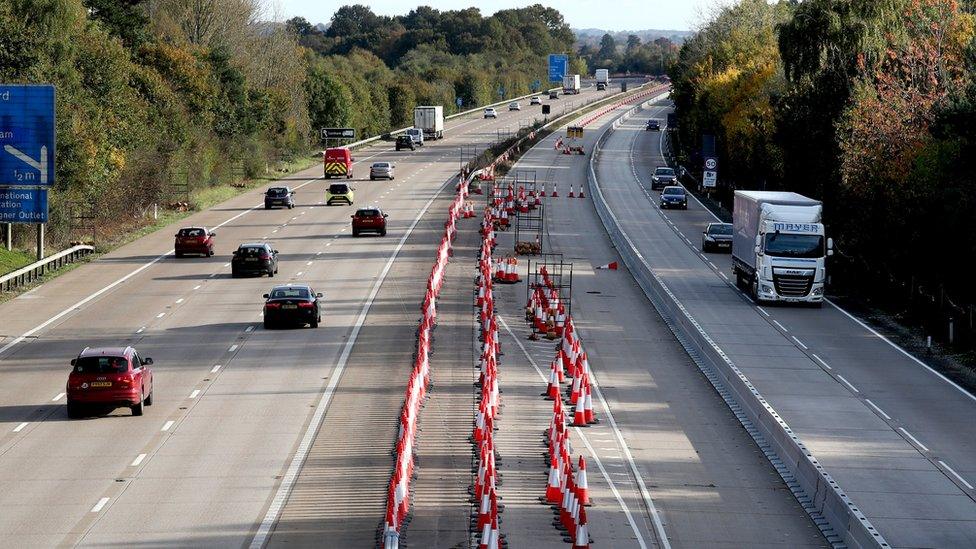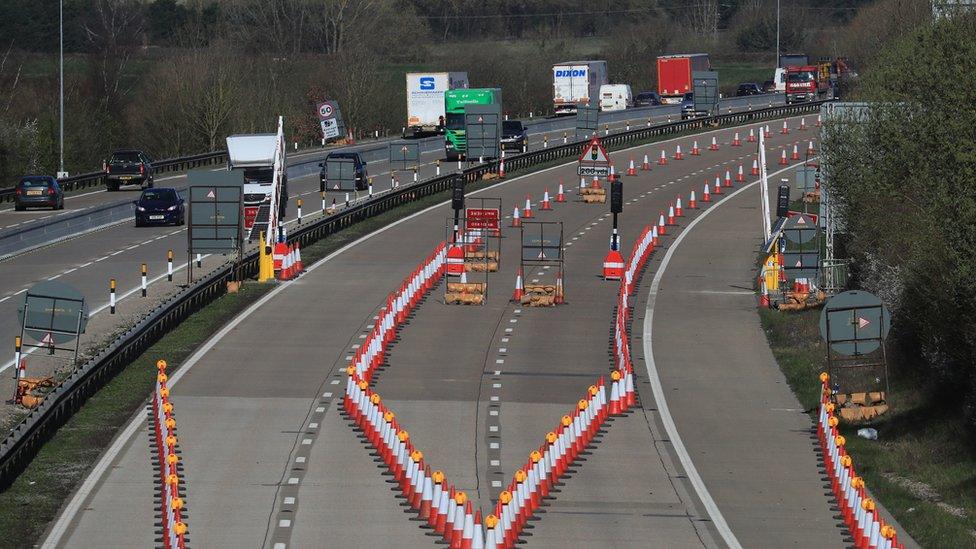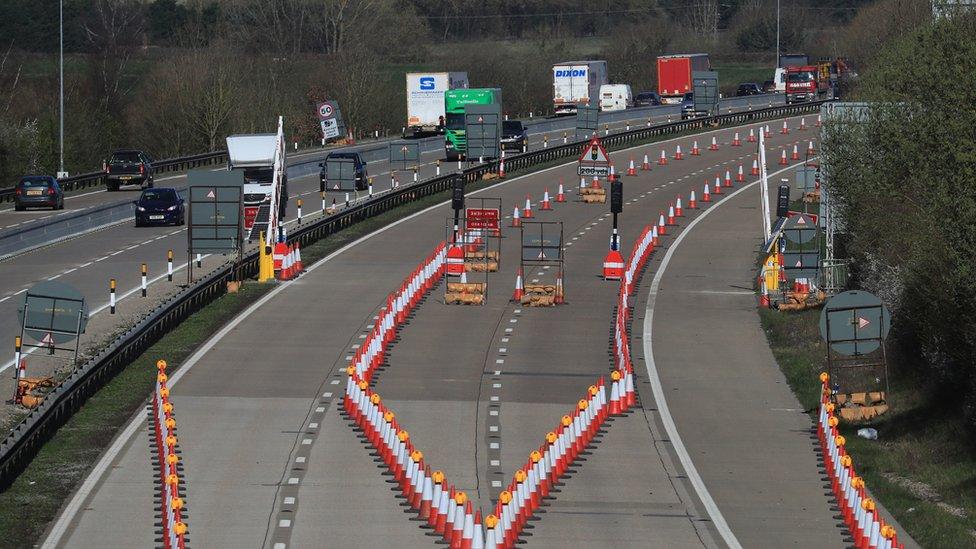M20: Operation Brock replaced by quicker barrier scheme
- Published

Operation Brock has been scrapped in favour of a moveable concrete barrier
Plans to erect metal barriers on the M20 in the event of a no-deal Brexit have been permanently scrapped.
Operation Brock barriers were removed in January but could have been re-installed over the period of a month in the event of Brexit-related congestion.
Their role was to separate HGVs on one side of the motorway heading to cross-Channel ports, with all other traffic restricted to a contraflow system.
Instead moveable concrete barriers can be installed within hours.
Compared to the speed restrictions and month-long overnight motorway closures required for Operation Brock, the new scheme causes less disruption to traffic and would be on standby from later this year, Highways England said.

Operation Brock would have seen one side of the M20 used only by HGVs heading to cross-Channel ports
It is designed to ensure the M20 is kept open at times of disruption, while also allowing the motorway to retain three lanes, a hard shoulder and 70mph speed limits in both directions during normal traffic conditions.
Transport Secretary Grant Shapps said: "After listening to frustrated residents and businesses affected by Operations Brock and Stack, we've invested in a new solution to boost Kent's resilience and keep its vital road network moving, even at times of disruption."
Highways England said the technology had been chosen by the Department for Transport and Highways England as a long-term solution to Operation Brock and Stack, and would ensure Kent was prepared for any disruption on the Short Strait, such as from industrial action or bad weather too.
The new solution also means that Highways England's work on an off-road replacement for Operation Stack has been halted. As part of this, previous Highways England plans for a new large lorry holding area in Kent are no longer being pursued.

Follow BBC South East on Facebook, external, on Twitter, external, and on Instagram, external. Send your story ideas to southeasttoday@bbc.co.uk.
- Published8 January 2020

- Published29 October 2019
